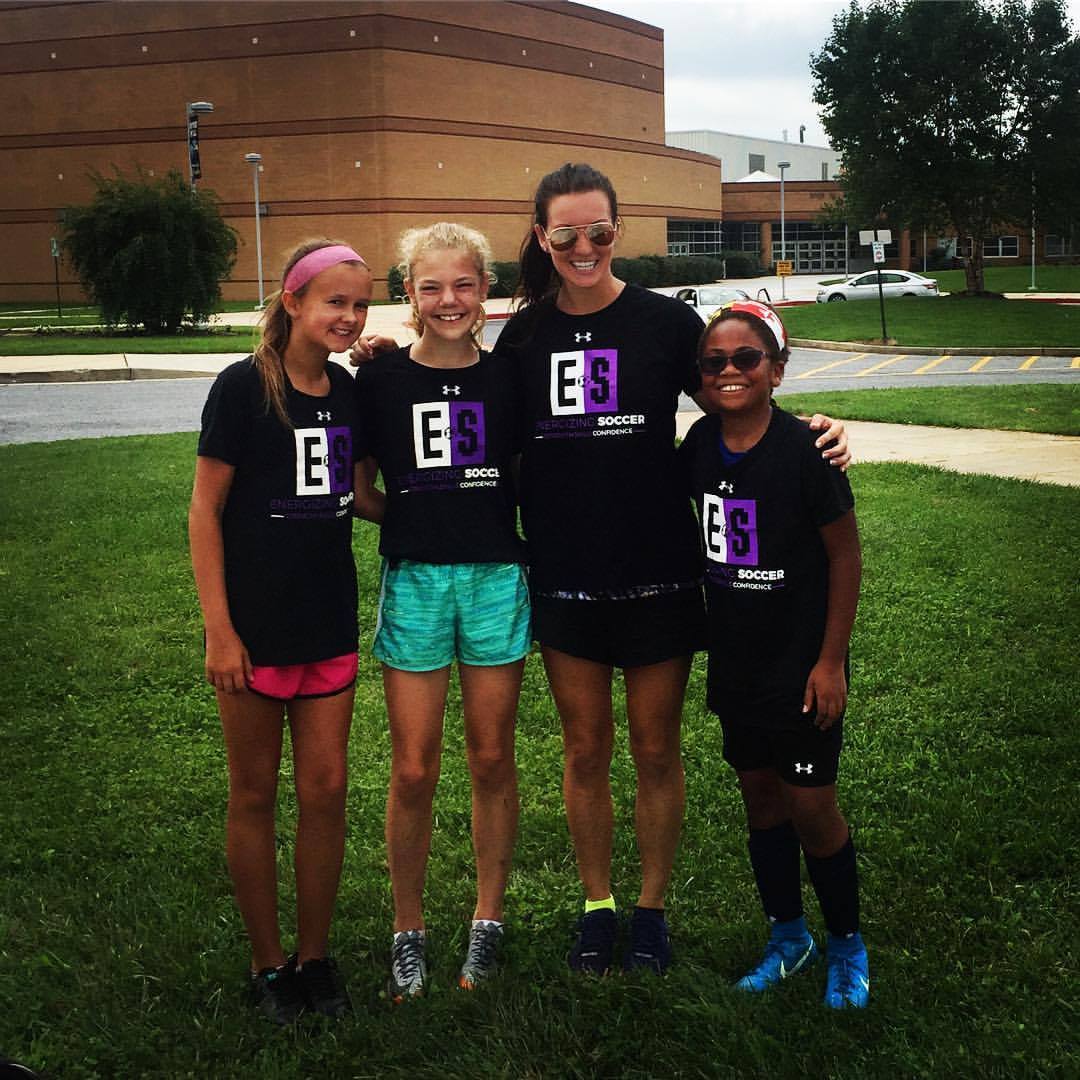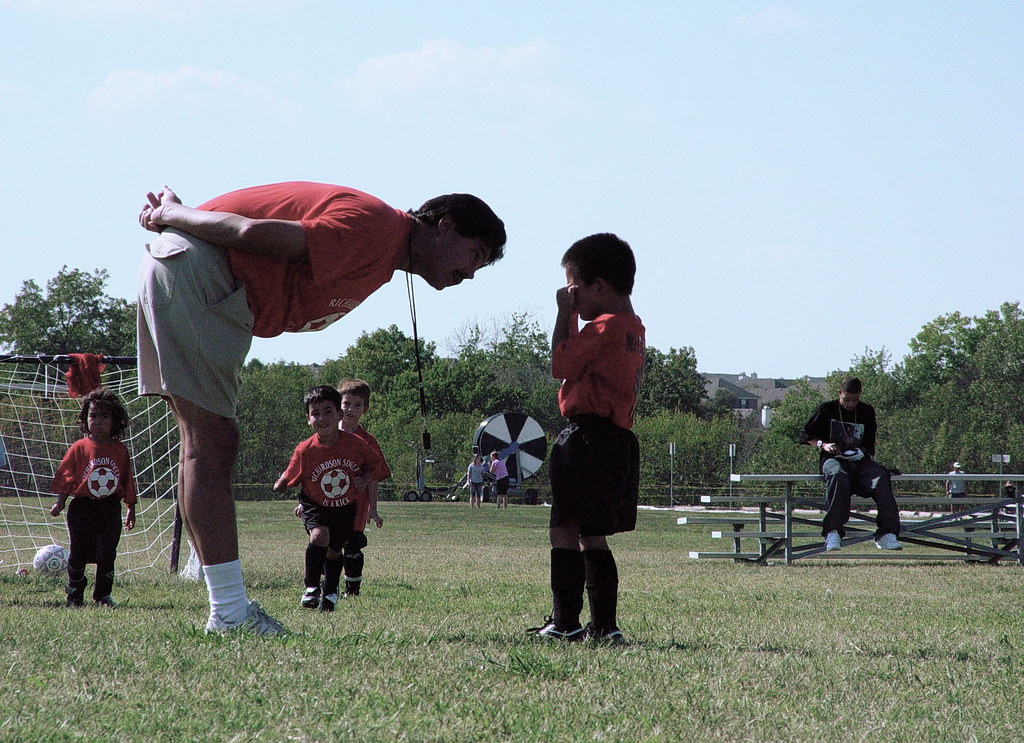
28 Oct Does Your Youth Athlete Have The Right Coach?
Last week, I went to an under 10-year-old travel soccer game to watch one of my amazing child athletes play.
I was pumped to see her crush it on the pitch, ooze joy for the game, and play in the present moment with a smile on her face.
Working with the “munchkins” (under 10-year-olds) is one of my favorite things to do. There is nothing better than delivering fun, high-energy and engaging training sessions to young athletes, and ensuring they fall in love with the game even more.
Pure joy is what youth sports is all about.
But sadly, polluting all of this fun, are abusive coaches who ruin the party for all of us, and send everyone home crying.

Taking the conversation back to my young player’s game, her head coach was going ballistic from the bench. Screaming. Degrading. Shouting. Throwing a fit for an adult male who should be a strong role model to little girls. <— yes, male coaches, this is your job, too.
Keep in mind, his team is an incredible, adorable and sweet group of 9-year-old girls.
“You all need to work harder!”
“You missed an easy shot!”
“You suck!”
“What the hell are you doing?!”
“Ref, f*ck you!”
He exclaimed all of this nonsense in front of his team of innocent girls. Even the parents could hear his overbearing voice and poisonous negativity from the sideline. They cringed, yet no one spoke up because they thought it was ‘normal’ to be hard on the girls.
This is sad, to say the least.
And it’s not ‘normal.’
I urge parents to not fall under the trap of “well my kid needs to be pushed.”
No.
Just no.
Your kid can be pushed and taught the game, yet have a coach who cultivates a culture of joy, motivation and passion for the sport.
At the end of the day, kids this age (and I’d argue any age) need to have a blast at practices and games, leave with beaming smiles on their faces, and not with their heads in their hands and tears in their eyes.
I’ve seen this too much: abusive coaching.
And you know what? Abusive coaching = lazy coaching and lack of creativity and preparation. Oh, and just being a moron.
End of story.
So how do you know if your kid has the right coach?
Here are some questions to ask:
1. Does my kid leave practice with a smile on their face?
2. Does my kid feel confident on the pitch, even when they make mistakes?
3. Does my kid say, ‘that was so fun!’ after every practice?
4. Does my kid want to practice on their own time?
5. Does the coach hold them accountable and establish a culture of practicing at home?
6. Does my kid have time to be a kid and enjoy other sports, hobbies and pursuits?
7. Does my kid feel comfortable to ask for feedback and approach the coach?
8. Does my kid feel at ease and not anxious before every game?
9. Does my kid look forward to games, tournaments, and practices?
10. Does my kid get equal playing time?
11. Does my kid play various positions to learn the fullness of the sport?
12. Does my kid call their coach a role model?
13. Does my kid know their strengths and does the coach amplify these?
14. Does my kid know how to improve on their weaknesses and does the coach offer constructive solutions?
15. Does my kid love their sport?
If you answered ‘yes’ to these questions, congratulations. Your child is in good hands.
While many of you may think it’s impossible to answer ‘yes’ to all these, I disagree.
Every coach who coaches young children should be held to these standards. Otherwise they’re not a true coach.


Stacy Russell
Posted at 20:06h, 30 OctoberThis message is very important. There is a difference between a tough coach who wants to teach work ethic/effort and a coach who berates and yells at the kids for mistakes.
If a parent is experiencing this with their child’s coach they do not need to sit on the sideline debating if they are the problem or their child is just too sensitive.
Dear parent, you are not the problem. If the coach doesn’t humble himself after a conversation with him then you have your answer. Do not let your child (or another child) or yourself become the walking wounded.
“The only thing necessary for the triumph of evil is for good men to do nothing.” ― Edmund Burke
erica
Posted at 20:43h, 30 OctoberThank you! Totally agree, Stacy. The coach has to teach the game and require effort, but they can do so in a strict, yet caring manner – not one that is abusive and degrading. It IS possible to be a role model to kids, a teacher, a caring coach. Thank you for your comment. Such a critical message for all coaches to analyze themselves as the youth athlete changes over the years…